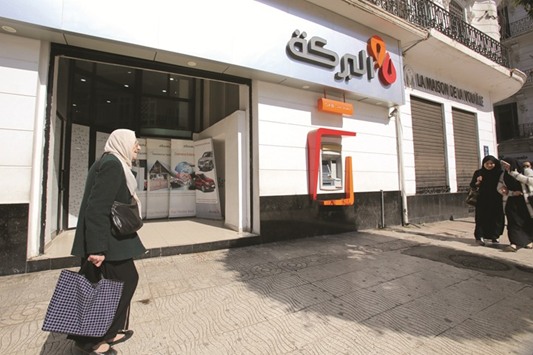When experts in Islamic banking gathered earlier this year at a state-run hotel in Algiers to share their experiences on Shariah-compliant finance, no one from the government showed up.
But despite this hesitancy - government officials are reluctant even to refer to Islamic finance by that name - Algeria is edging slowly towards offering banking services to suit more religiously conservative investors.
The object is to attract funds from a huge pool of cash held outside the formal banking system as Algeria looks for more ways to offset the sharp fall in oil prices and its energy revenues.
Finance Minister Hadji Baba Ammi has already announced plans for the country’s first local bond that is interest-free, complying with the Shariah law which forbids interest payments - although he called the scheme “participative” rather than Islamic.
Now six state-run banks plan to start Islamic financial services by the end of the year or in early 2018, and a national Shariah board that would oversee Islamic banking is also planned by the end of 2017, banking and government sources told Reuters.
Algeria’s Islamic finance plan still faces huge barriers. It lacks a legal framework and technical expertise. On top of such concerns, any kind of reform is often delayed in Algeria by heavy bureaucracy and inertia, but bankers are keen to push ahead with the idea.
“Financial institutions must be more dynamic and aggressive in the market by allowing Islamic products to grow,” said Nasser Haider, head of Bahrain-owned Al Salam Bank Algeria. “Regulation has not been a hurdle for Islamic finance in Algeria, but a legal framework would help its development.”
With the economy emerging from decades of centralised control, Algeria badly needs alternatives to the energy revenues that have traditionally financed 60% of the budget. The plunge in global crude prices from mid-2014 halved earnings from exports of oil and gas. In 2015 the budget deficit shot up to 16% of Algeria’s annual gross domestic product (GDP) and the government is estimated to have narrowed the gap only to 15% last year.
A state fund intended to cover such deficits plunged 59.5% over the course of last year while foreign exchange reserves are estimated to have dropped to $114bn by the end of 2016 from $178bn in 2014.
The government has approved a 14% cut in spending for 2017 and higher taxes.
Algeria issued a conventional, interest-bearing bond on the domestic market last year. But the amount raised, $5.86bn, fell short of expectations after religious leaders - and even the government’s own ministry of religious affairs - gave the operation a chilly reception.
Algeria is far behind North African neighbours Morocco and Tunisia, which have started to develop legislation for Islamic finance and sukuk bonds, overseen by a central religious board.
That may change if the planned Algerian national Shariah board comes to fruition later this year, a government source familiar with Islamic financing plans told Reuters.
Algeria is targeting domestic savers rather than foreign investors. Many local people distrust the state-owned banks and keep large sums at home, untaxed, in Algerian and foreign currency.
Experts put informal economy savings at about $90bn. That would be roughly equal to half Algeria’s annual GDP, and the government launched a study last month in partnership with the UN Development Programme to assess the real size of the parallel market.
Last year it failed to draw money from the informal market when it offered a fiscal amnesty under which Algerians could deposit undeclared income and pay a 7% fee.
Al Salam Bank Algeria and Al Baraka Bank Algeria, local units of Bahrain-listed Islamic banks Al Salam Bank and Al Baraka Banking Group, are already operating in Algeria. But their market share is estimated by experts at less than 4%. They offer retail and commercial banking services.

A woman walks past a branch of Al Baraka Bank in Algiers city on April 5. With the economy emerging from decades of centralised control, Algeria badly needs alternatives to the energy revenues that have traditionally financed 60% of the budget.
